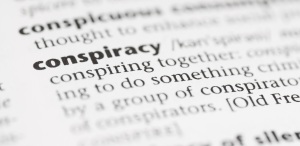Conspiracy is often charged in federal cases because it covers a broad range of conduct. For a person to be convicted of committing a conspiracy, a prosecutor has to show that two or more people agreed to commit a federal offense, and at least one person committed an “overt act” to further the illegal agreement. In some federal jurisdictions, the crime does not have to occur, the government does not even have to prove an overt act. Additionally, in a case where a person is charged with conspiracy to sell narcotics, the prosecution does not have to show that each defendant had drugs in their possession.
A DC federal conspiracy lawyer with experience handling these cases could help a person understand the strength of the government’s case and the legal complexities they now find themselves in. Get in touch with an accomplished federal criminal attorney today.
Types of Conspiracy Defendants
When a large number of people are charged in a conspiracy there are often alleged participants that have never met or spoken to one another. In these cases, it is not uncommon for a person who played a comparatively minor role in an agreement to be accused of the larger drug trafficking conspiracy with other players who allegedly had a more significant role.
The law of conspiracy allows prosecutors to bring in more evidence than they would otherwise be able to admit in cases where conspiracy is not charged. For example, the statements of alleged co-conspirators are often admitted without the usual safeguards that disfavor admitting co-defendant statements into evidence against the other defendants.
Code and Conspiracy

Macro image of dictionary word: Conspiracy.
The United States Code contains several conspiracy statutes. The general conspiracy statute is contained in 18 U.S.C. Section 371 and makes it illegal to agree with another person to devise a criminal plan and defraud the United States government or to violate other federal laws. In narcotics cases, 21 U.S.C. Section 846 prohibits conspiracies to manufacture, distribute, or possess with intent to distribute unlawful controlled substances. For more information, consult with a federal conspiracy lawyer in DC.
What is Fraud?
Fraud is a crime that is often charged along with conspiracy. Fraud is an attempt to gain money or value by a false representation of fact. One example would be an individual or health care provider misleading an insurance company to receive unearned benefits or profits. This includes health care fraud, Medicare fraud, or Medicaid fraud. Prosecutors can also charge a person in DC with fraud under a misrepresentation theory.
A state attorney in DC could, for example, seek to prove that the seller of a product defrauded a purchaser by misrepresenting the nature of the product. An example of this is marketing a used car as “new.” Fraud schemes can sometimes be perpetrated by more than one person, which is why conspiracy charges are frequently sought together along with federal fraud charges. More information about fraud can be found here.
Benefits of a Federal Conspiracy Attorney in Washington DC
If a person is facing federal conspiracy and/or fraud charges, or if they have reason to believe they are under investigation for such charges, they should immediately contact an experienced DC federal conspiracy attorney. A consultation with a lawyer could help an individual learn more about the criminal defense process and the most efficient course of action for their case.
